Hughbanks imparts wisdom in Q&A
Ty Hughbbanks has taught at SCCC for four years now, though this is his second stent. Hughbanks has traveled to many countries and says that being selfish before you can settle down is important.
Before the interview could begin with Seward County Community College biology instructor Ty Hughbanks, he had an important question of his own he needed answered: “Can we take a smoke break?”
Outside, standing next to a tree, Ty took a few puffs of his cigarette before he was ready to start. Despite having traveled all over the world, he says he worries that his experiences won’t be interesting enough, though he still wants to share them.
Q: What was it like growing up for you?
A: I grew up in a small town in Kansas, just three hours east of here, right on the Oklahoma line. So, I relate well to students here, because almost all of the students here are from small town Kansas too, or small town Oklahoma, New Mexico, Colorado or Texas. I really relate to small towns a lot better than I do large cities.
Then, I was a trash man starting in 1981, and I did that for eight years. And, shit, I loved being a trash man! I really did. It sounds crazy, but I was fascinated by human wastefulness and all of the things I found. It was like I got paid to go to work and go on a treasure hunt. It also allowed me to realize that I didn’t want to be a trash man forever, though.
So, growing up in a small town, of course, I had that idea in my head that there was a whole world out there and meanwhile, I’ve been stuck in this little town. I want to go see it! I had this strong urge to go see the world, and I wanted to do it on my own terms.
Q: As someone from a small town, how did you go about doing that?
A: Basically, I just made it a priority, and life really is all about priorities. I prioritized seeing the world, which required some money and time, and those are always the two kickers. When I had time, I didn’t have any damn money, when I have money, I didn’t have any damn time. It’s one of those juggling acts in life where you just have to ask yourself, “Hey, what am I going to sacrifice?” A lot of times, I sacrificed money so that I had more time. When I went on my trips, or went on my excursions, or ventures, or, as Don Quixote called them, “enchantments,” I basically would go for three months, or a year and a half, or, the longest one, two years and three months on a holiday.
Q: Why so long?
A: You can really see a lot of the world on a longer holiday. When you just go somewhere for a short time, a week or two, you really don’t get the same experiences as someone that’s lived there for months. By living there for long time periods, you can really immerse yourself in the culture and the whole experience of understanding that, hey, this culture that I thought was so different when I initially came here is already much more familiar to me.
You know, I once told the information center lady here at SCCC, Virginia, when I resigned in 2004, that I was going on holiday for a long time this time. She asked me, “What are you, rich?” And I said, “Virginia, I’m the richest man you’ll ever meet… but I only have $13,000 in the bank.”
Click on the map on to see where Hughbanks has been.
Q: How does being able to embrace new things like that change a person?
A: I think that’s a really important thing in life, to just embrace those new experiences, because that’s what’s really going to cause you to grow as a human. That’s pretty much been a philosophy of mine since I was a fairly young man. I just feel like all of us should try to grow daily. I always encourage students to embrace diversity. The more you diversify your experiences, the happier you end up in life. That should be the main goal for everyone. We’re all really searching for happiness, and trying to stay on that path to happiness. We all stray from that path at certain time periods in life, but the more that we can maintain that path, the more beautiful life is.
Q: Are there any moments, or people, or places that stand out to you in your travels as being particularly impactful?
A: In Bolivia one time, I was in a region where the people spoke a language called Guarani. There was a Catholic priest there, the Padre, and he was the only one who spoke Guarani and Spanish. My Spanish was very limited, but we did communicate about these people, and I just found them absolutely fascinating. They were some of the happiest people I have ever met on the planet, and they lived in thatched roof huts, with dirt floors–they even swept the dirt. What shocked me is that these people, having some of the fewest possessions in life, were some of the happiest people I’ve ever observed in my life. It really struck me, and I became aware of how materialistic our consumer culture is. I realized that, hey, that stuff, a lot of the time, actually makes us unhappy. The more we can shed those materialistic values, the easier it becomes to maintain a path to happiness.
It was just a pure, beautiful experience they had. Their love of their families, the food they grew–I mean, even their food and their land was a weird thing. I could’ve owned a house anywhere, because they didn’t consider the land possessable. In other words, it was like a mother to them–we don’t possess our mother. This is what gave birth to us, and gave life to us, and to possess that? It just made no sense in their culture. It just really struck me, being there, in my twenties, that maybe our philosophies of life in Western culture are not ideal for a happy society.
Q: And why do you say that?
A: I mean, just look at it! Thirty years later and I’m thinking, yeah, nothing has changed my mind. I’ve never thought that, hey, materialism and consumerism brings us happiness in life. No! It usually just brings about misery. In the moment, that new, material item brings us very short term happiness. Then, it’s old, and we’re no longer concerned with it. We don’t find happiness in it anymore. So, why did we make ourselves slaves to a job to afford all these materialistic items when it’s better to spend our time enhancing our brains? All the things in life that I feel like are priceless are free. All the stuff that costs money? It has no real value–or, there’s temporary, short term value. Why waste our time with that?
Q: It’s clear to your students, and to people who know you, that you’re unconventional. How does that fact coexist with settling down? Or with teaching?
A: Well, I’d definitely agree 100% that I’m not conventional. I really feel like most of the satisfaction I get out of teaching comes from having already had so many experiences. By satisfying that curiosity about what was going on in the rest of the world, it allowed me to come back to where I grew up and share my experiences.
If you’d asked me in my twenties, or thirties, or even my forties, whether I would be happy settling down and raising a family, I would have said, “no–you’re crazy.” I was very selfish in my youth, and that selfishness allowed me to go and do what I wanted to do, but that is not conducive to raising families. Now that I’m aging, I go, hey, now I can devote my energy to changing my children’s lives and my students’ lives. I get a lot of satisfaction knowing a student might have become a student of life themselves because something I said resonated with them. The one area you never want to be settled in is your brain, though. It should be changing, always. Create a beautiful mind–it’ll be beautiful for a lifetime.
Q: What got you into the career field that you’re in? Why become a biologist?
A: Like most things in life, money does influence it. I really had planned on a medical career [laughs], but I realized it was a little too costly–both financially and experience wise. To go to med school, I was going to have to join the military to be able to afford it. I was going to change my life if I went that direction, and I recognized that as an undergraduate. I started to realize that I had different priorities than I’d thought. I said, “Okay, I’m going to study what I want to study and go have the experiences that I want to have, even if it isn’t what I had initially set out to do.”
Q: So it’s really not about the money at all?
A: You know, it’s not the ones that die with the most toys that are the winners. No–in fact, if you die with no possessions, you probably won. You’ve experienced the most happy moments that you possibly could. Nobody’s happy all the time, but when you compare the number of times I was happy in my fifty one years of life to cohorts of mine that have chosen more traditional experiences in life, I really feel like I’m a lot happier.
Q: You don’t shy away from any subject. Why is that?
A: Nothing is taboo. Our goal should be to have intellectual discussions on subjects that society thinks are taboo. Religious conversations, political conversations, conversations regarding sex–I think those are all part of the student experience. To have open discussions where we can mutually agree to disagree allows students to step out of their comfort zones, to not shy away, and to speak up. They may hear another side of life that they haven’t considered. The only way we can solve any of these issues, is by talking about them. Not talking about something only leads to major problems. Having those hard conversations allows everyone to grow.
It’s probably a bit of a shocker for a lot of new students coming in to my class when I talk about certain things. Everyone’s views have all been similarly molded by culture, so I want to share some of the things I’ve learned through my experiences with those who may have never heard another side. If we’re not open minded as a society, it’ll be the doom of our society. We basically go, “Shit, you’re Muslim–you don’t even deserve to live,” or “No, you’re Christian, and you guys are infidels–you don’t deserve to live.” What narrow views of life! That, to me, is just terribly tragic. Even though I don’t share any of the views that religious people have, really, I still like to have discussions about it. I get to learn, grow, change and evaluate my ideas, too.
I’m raising my kids the same way. I don’t want to say that my children are more advanced or more mature, but they have been introduced to subjects that a lot of ten and twelve year olds have no knowledge of yet. I’d rather they learn about these things from me or my wife, anyway, instead of another twelve year old on the playground–they might not be the most reliable source. Later on, they can compare notes [laughs].
Q: So, what advice would you give to your kids? To upcoming generations in general?
A: I would say… you have to seize the moment, all the time. But, when you make your decisions, make decisions based on your long term happiness, not short term. Long term decisions for happiness must consider the next generation.
Carpe diem, you know. If you’re focused on the events that have occurred in your past, you’re not going to be happy. If you’re only focused on how you’re going to be happy in the future, thinking you’ll finally be happy when you get your degree, or that you’ll be happy when you get a good job, or when you get married and have kids, you’re putting off your happiness always to the future. You’re never going to get to experience it. An English girl I met on the beach in Australia said this to me once: “Yesterday’s history, tomorrow’s a mystery, today is a gift, and that’s why we call it the present.”
This story has been edited and condensed.
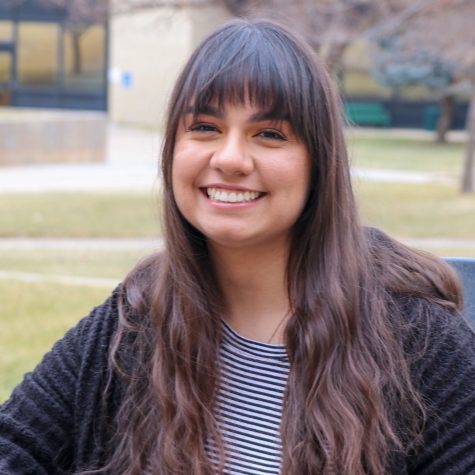
Annette Meza is a sophomore journalism major. She is 19 years old and was born and raised in Liberal. In her free time, she...


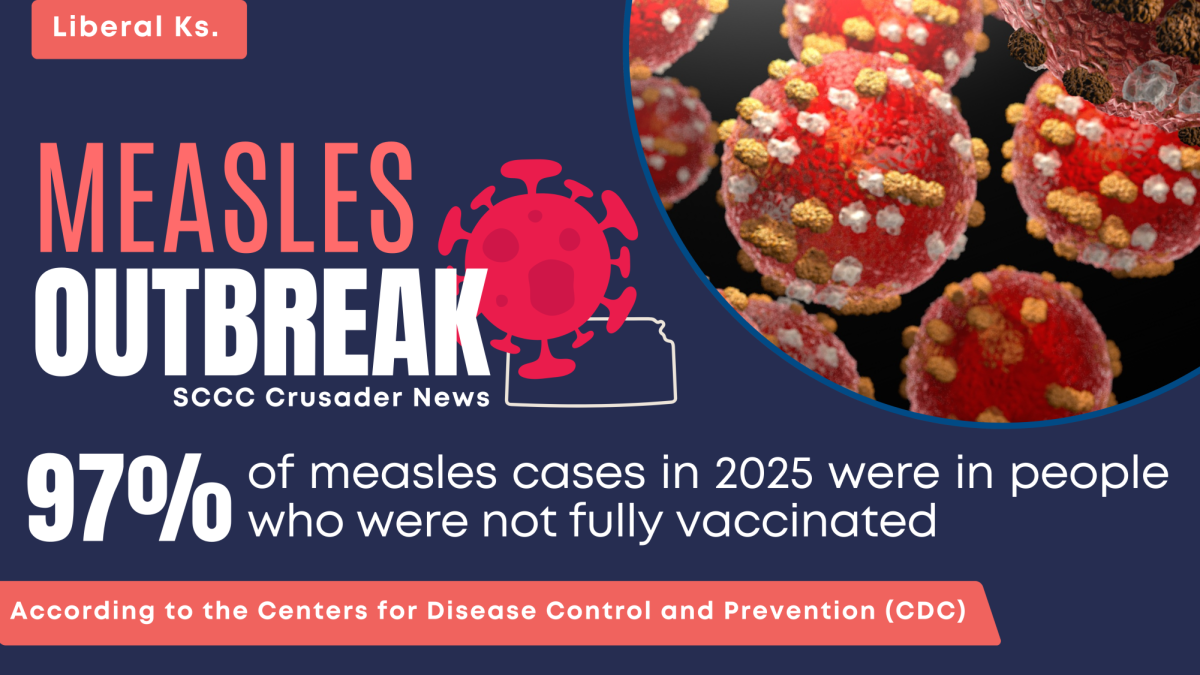
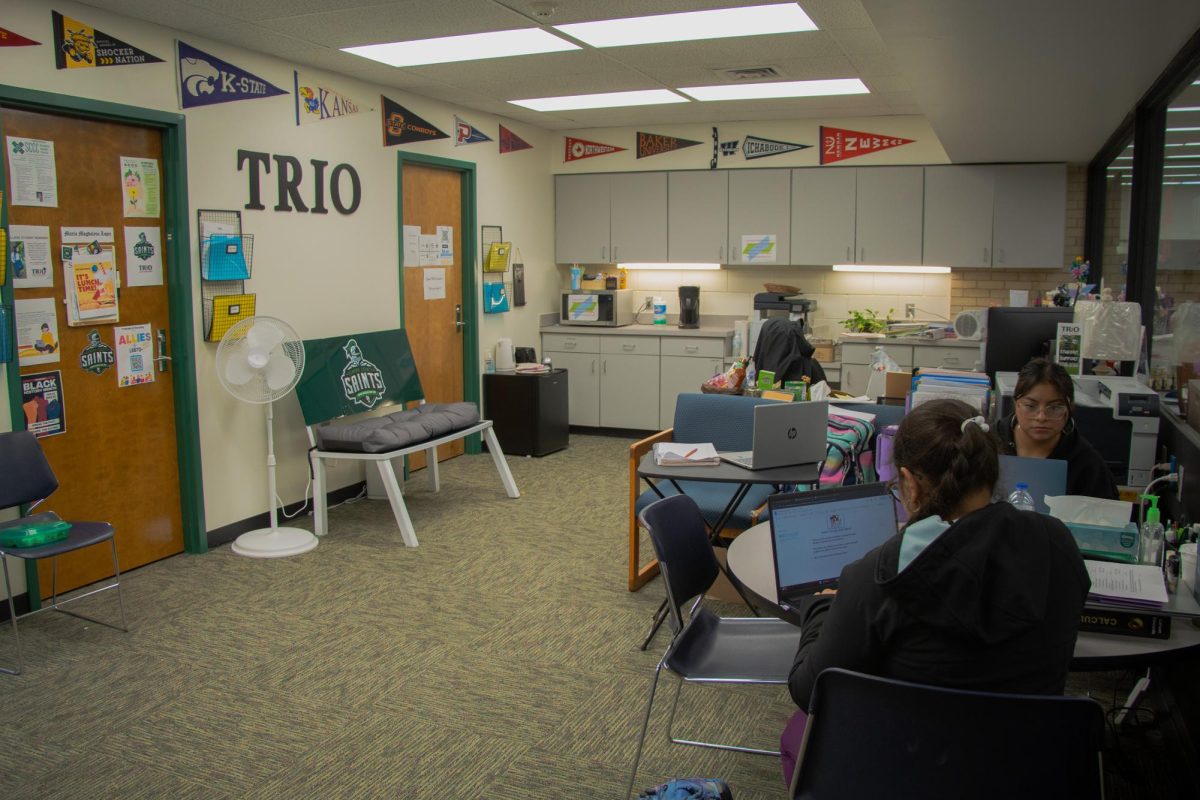

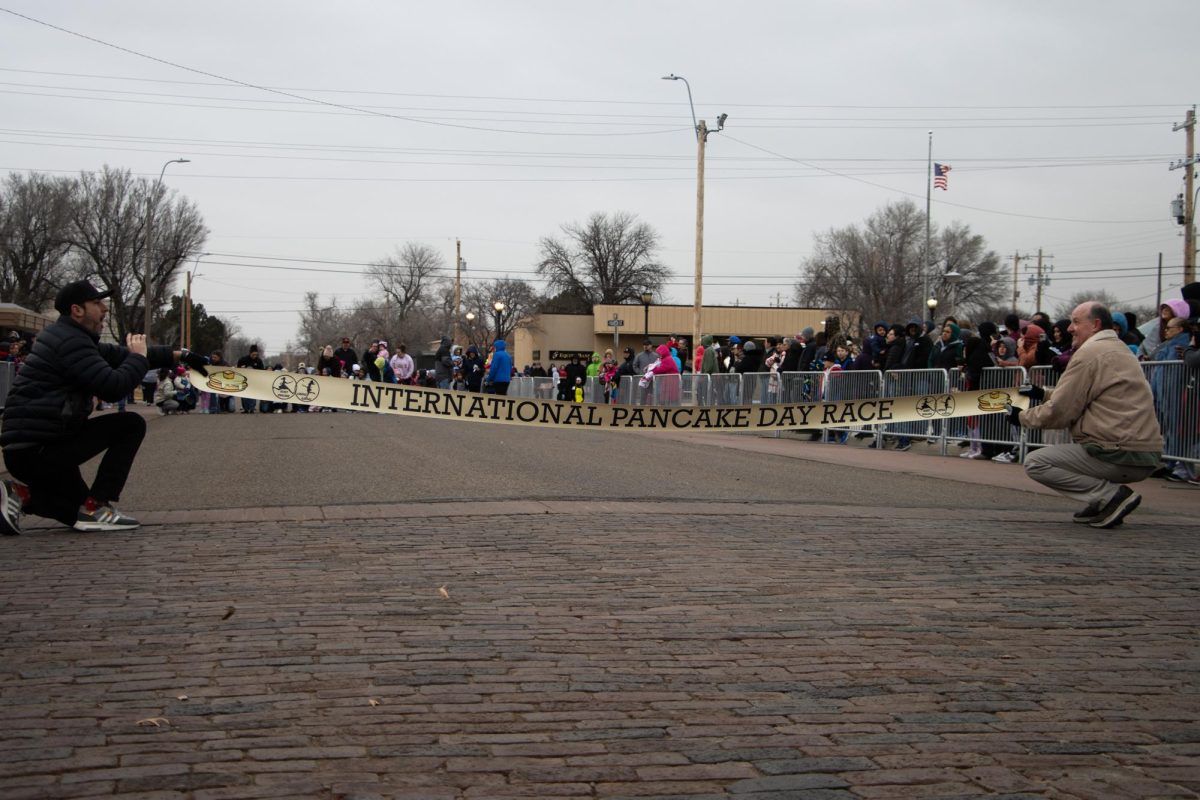








![The sophomores were recognized on the field instead of walking across the stage during their doubleheader. They received their diplomas and a picture of themselves playing during their career at Seward. [Pictured left to right are Dylan Day, Reed Thomas, Jase Schneider, Mason Martinez, Gannon Hardin, Brody Boisvert, and Zach Walker]](https://crusadernews.com/wp-content/uploads/2022/05/WEBDSC_0275-900x454.jpg)




















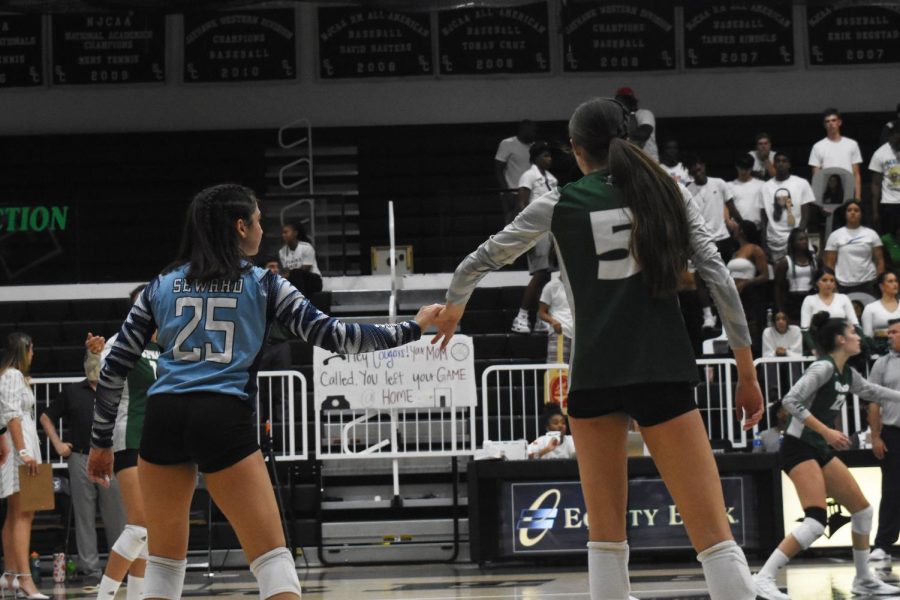
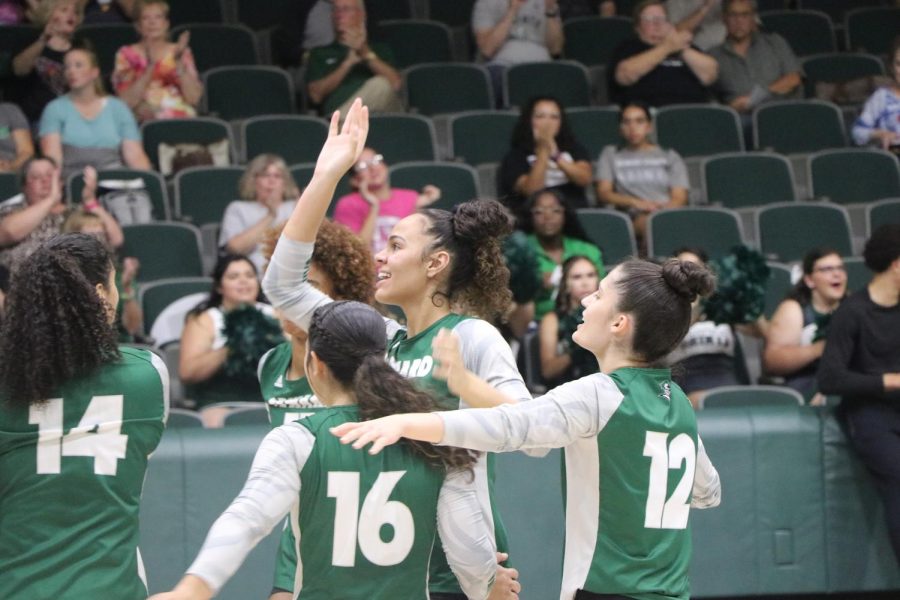





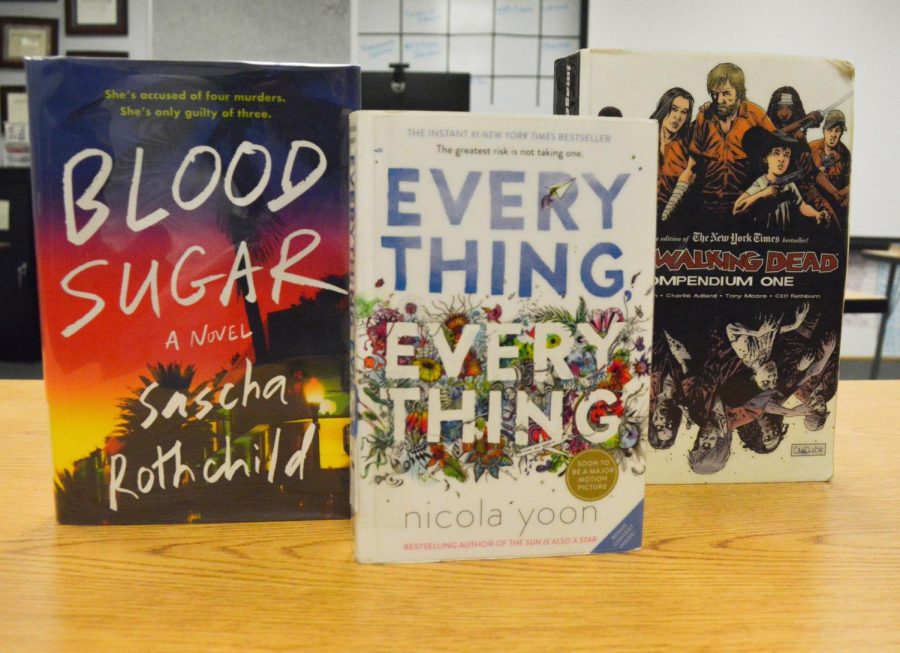
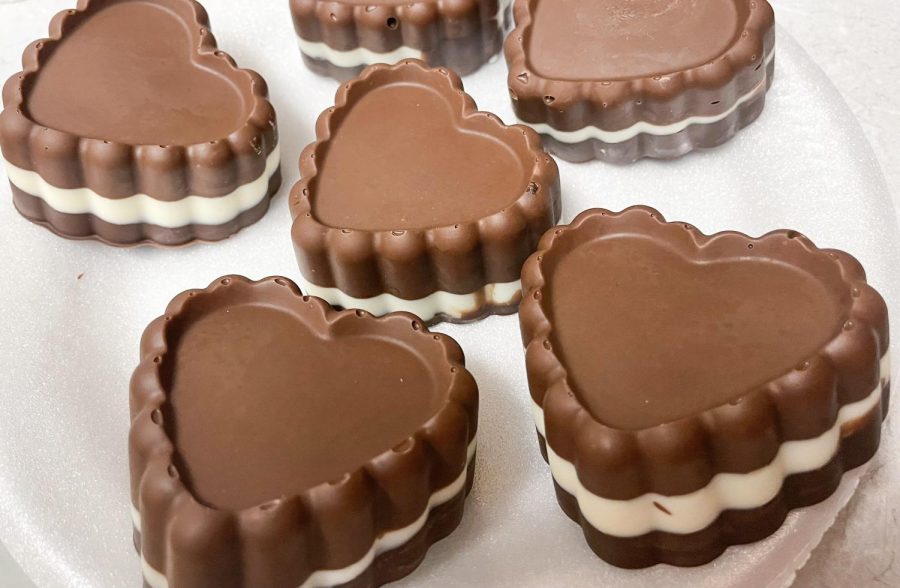



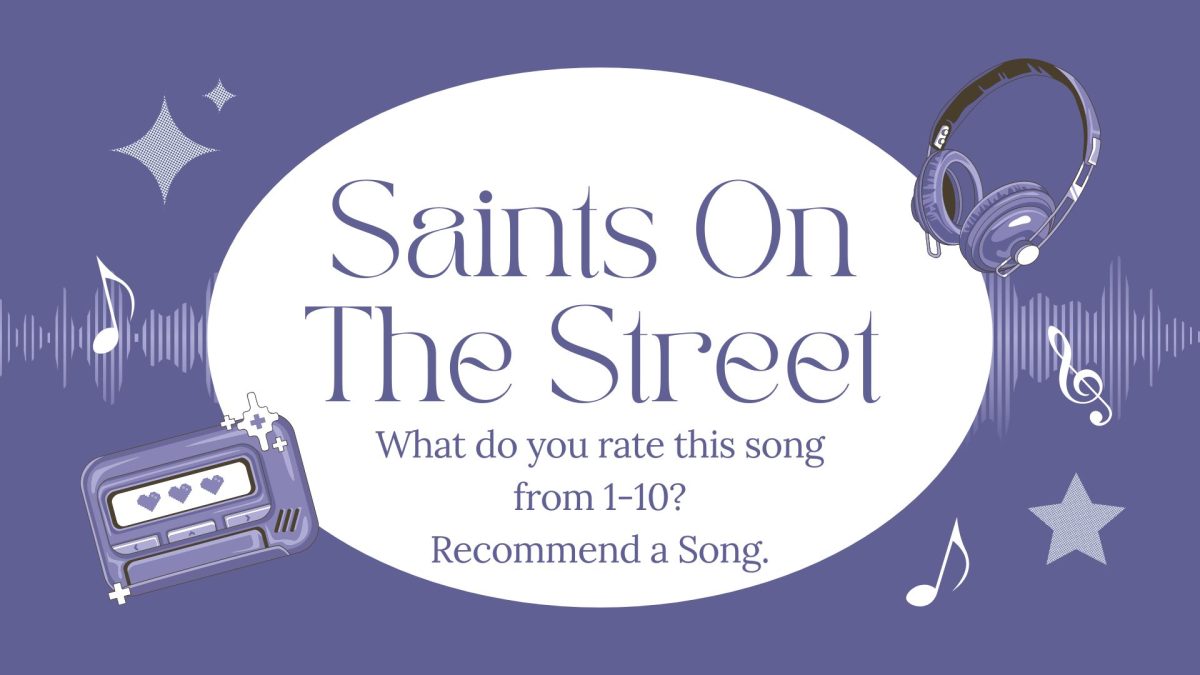

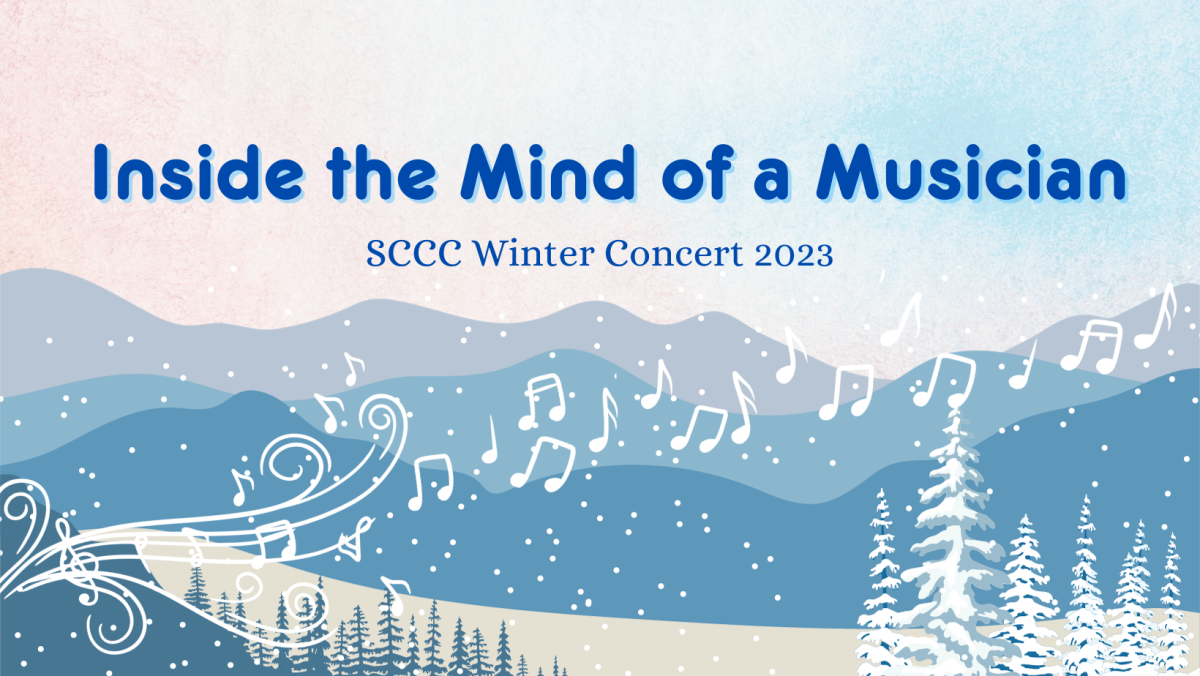





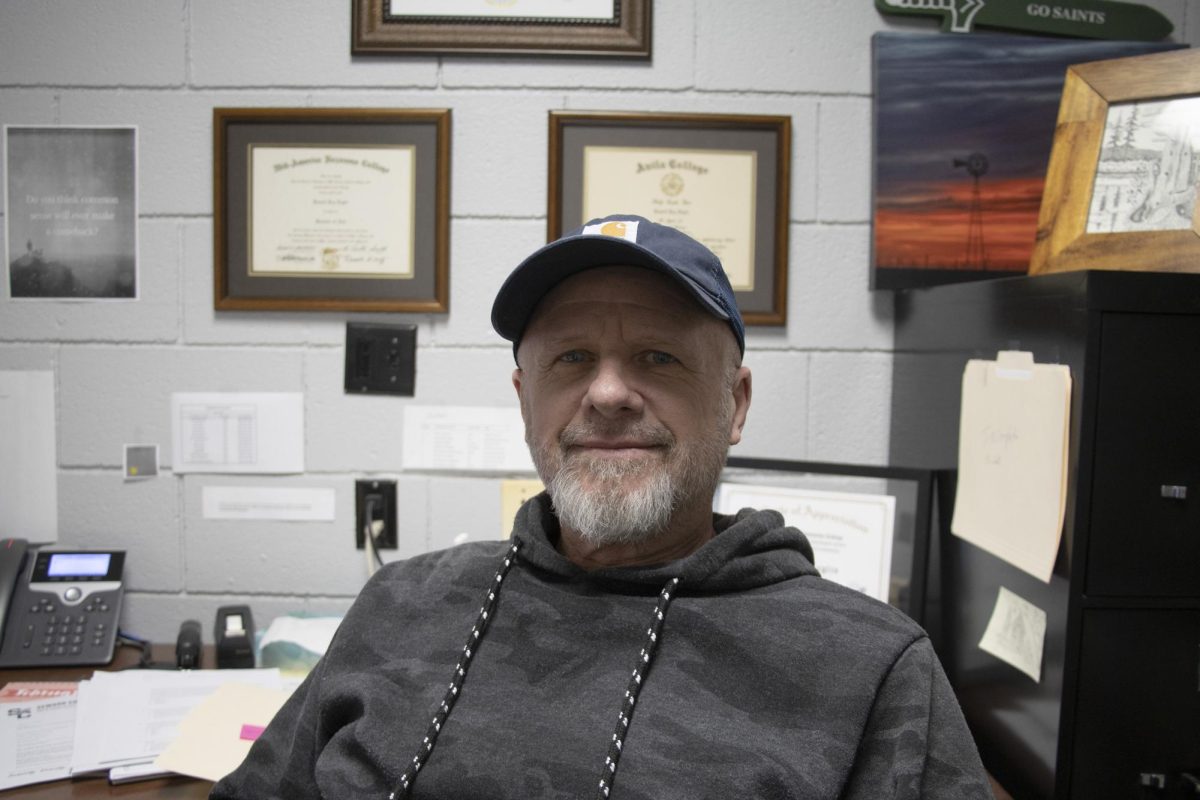
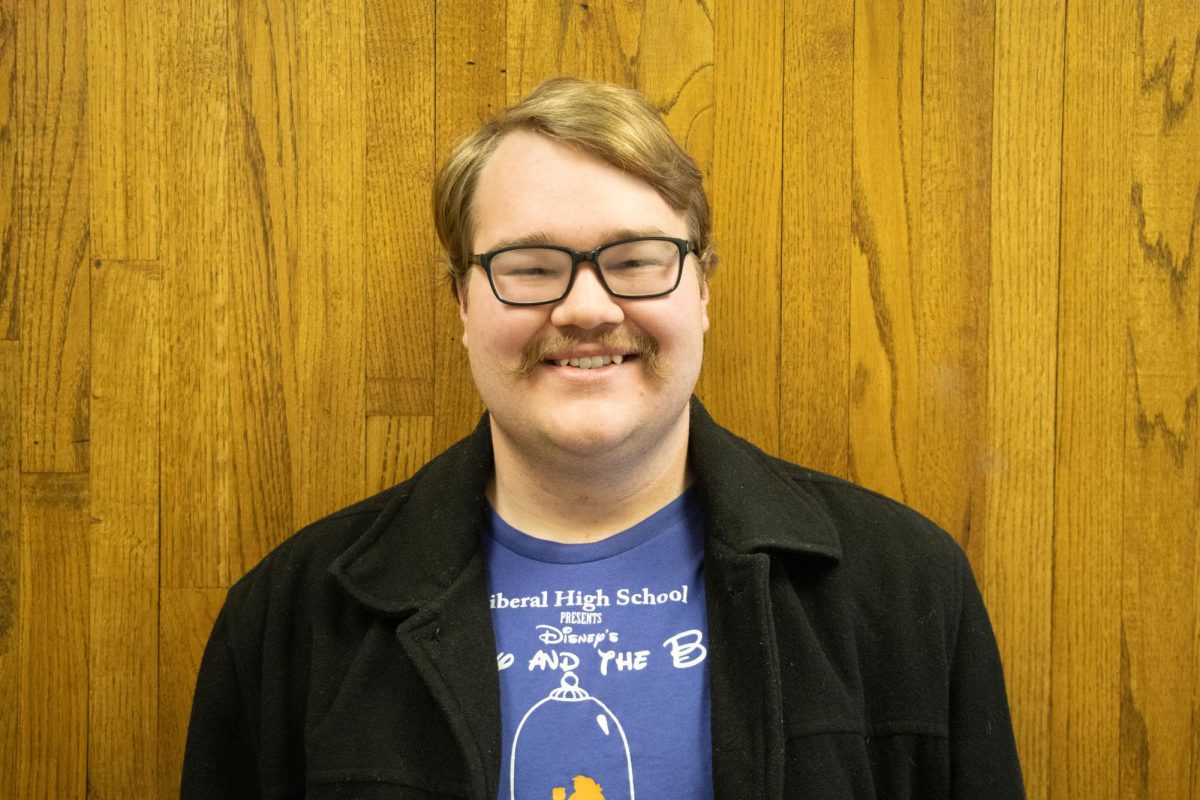
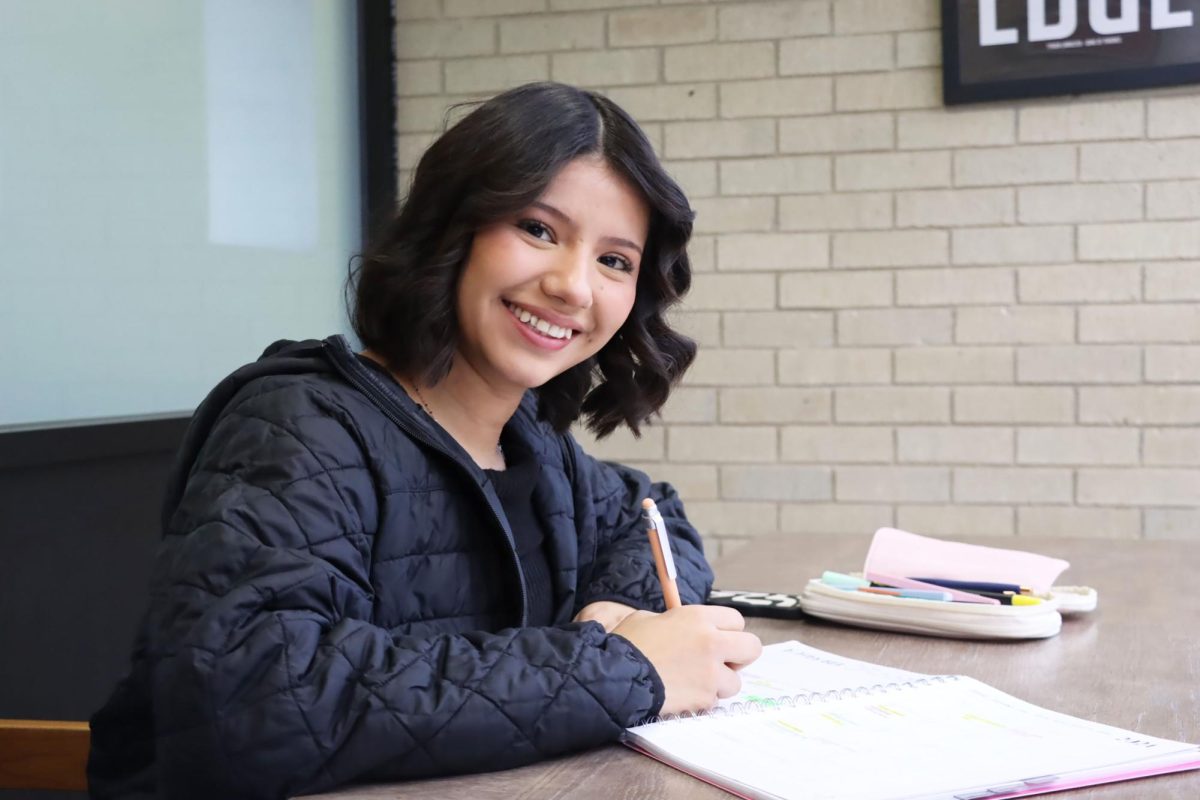
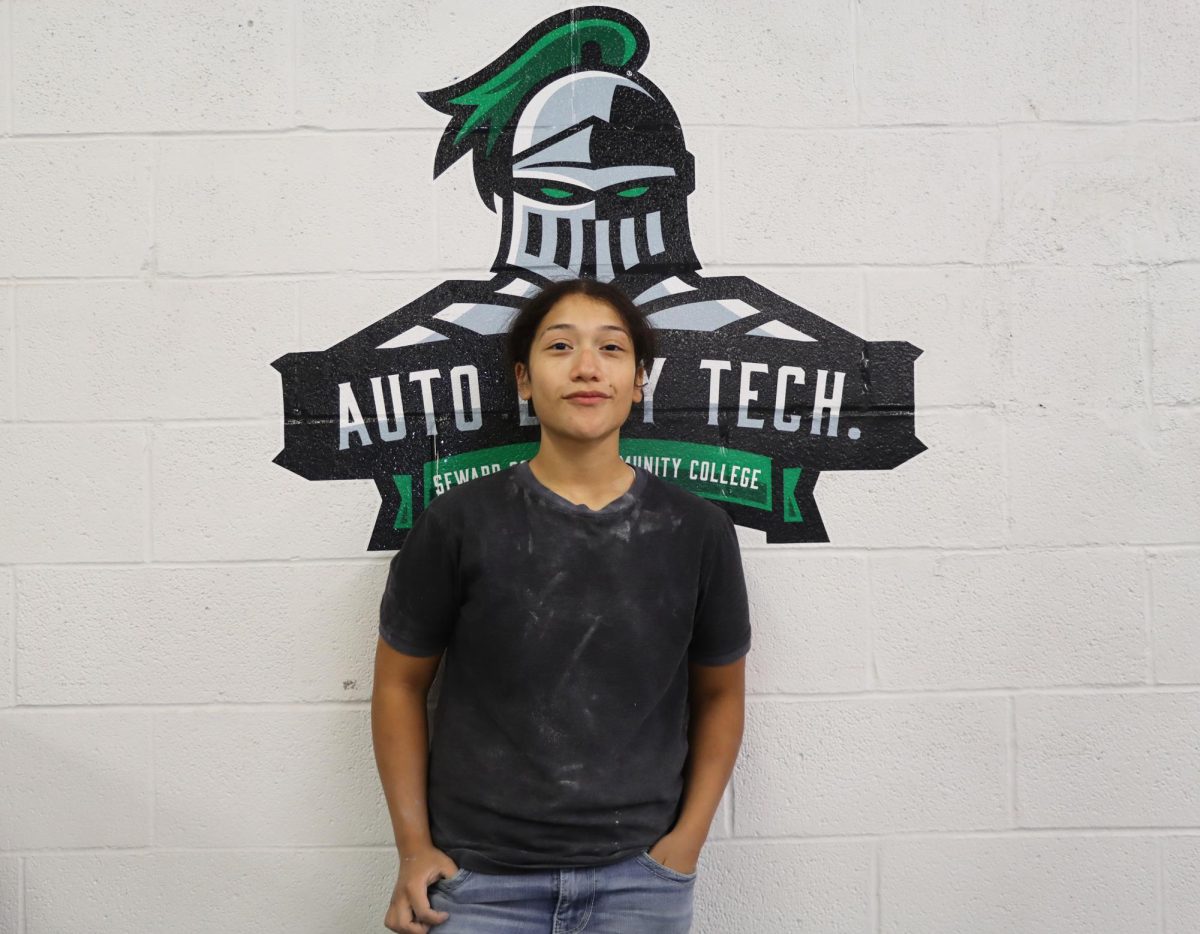
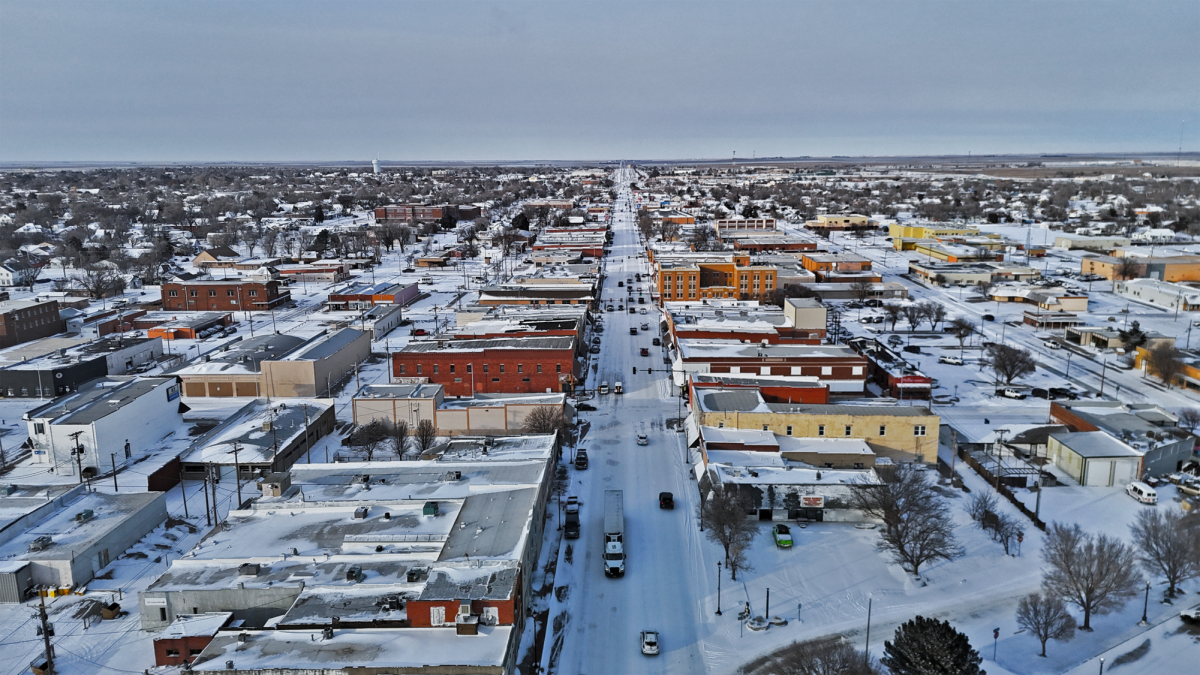
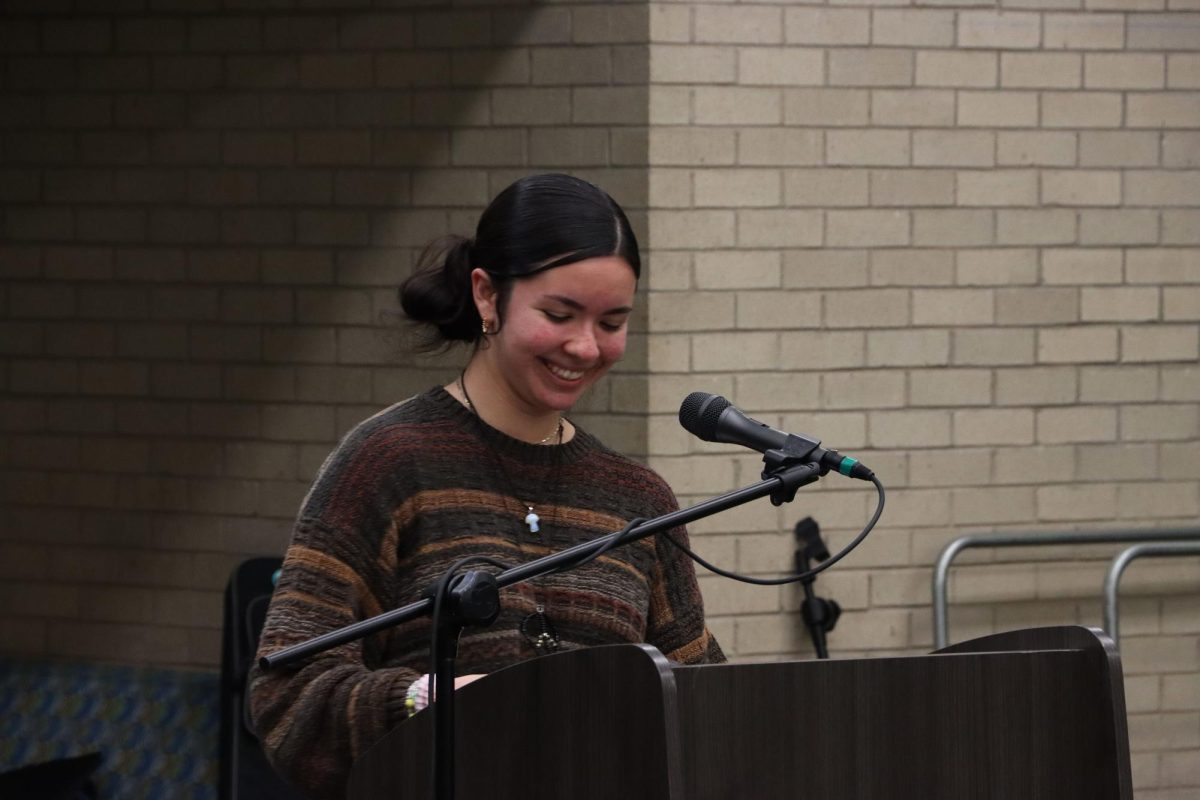














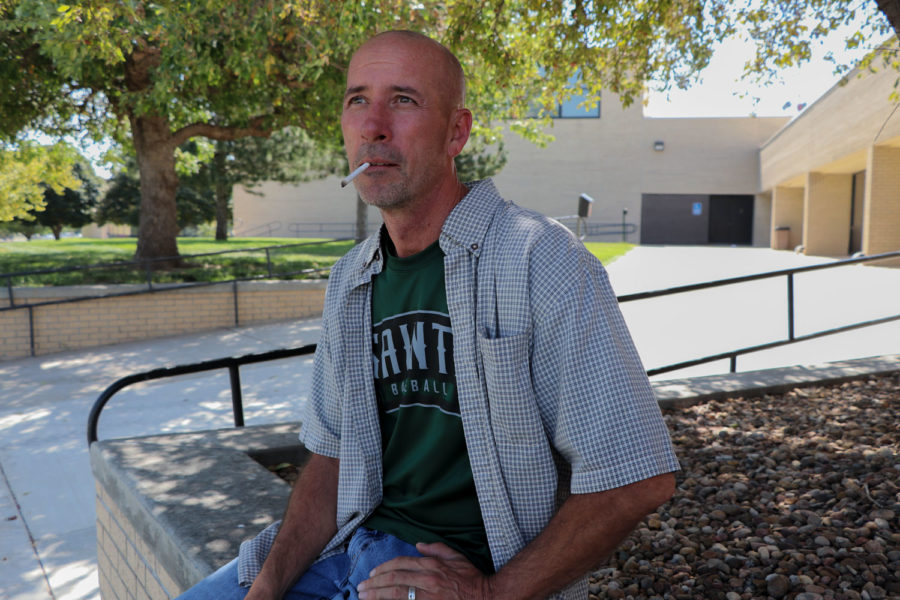
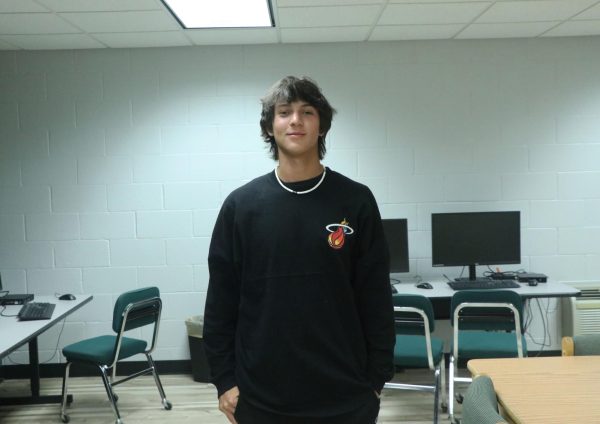

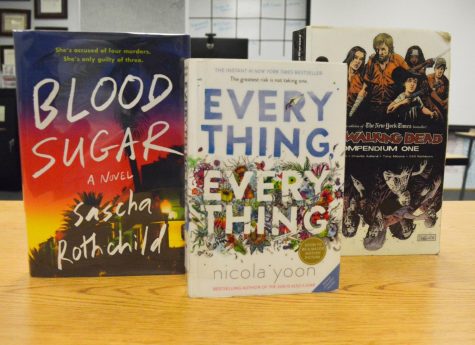

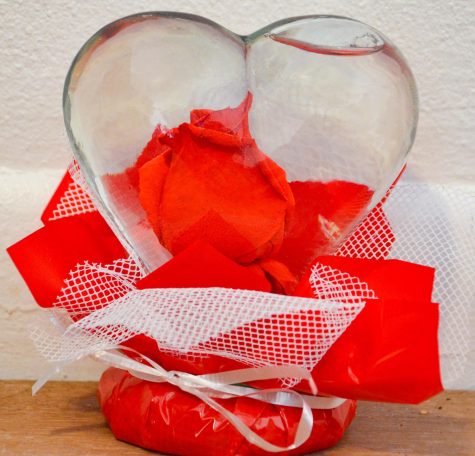
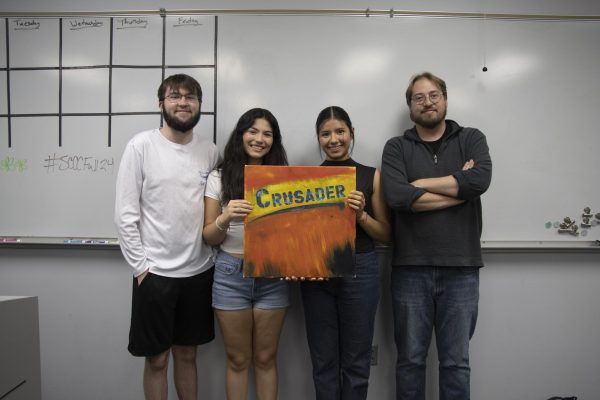
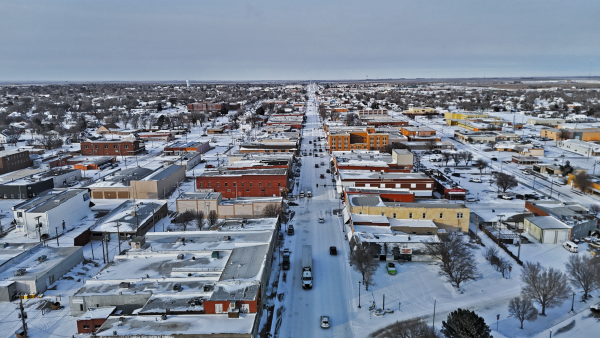

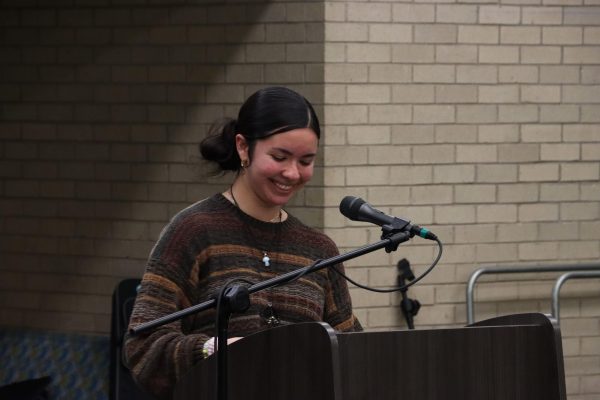
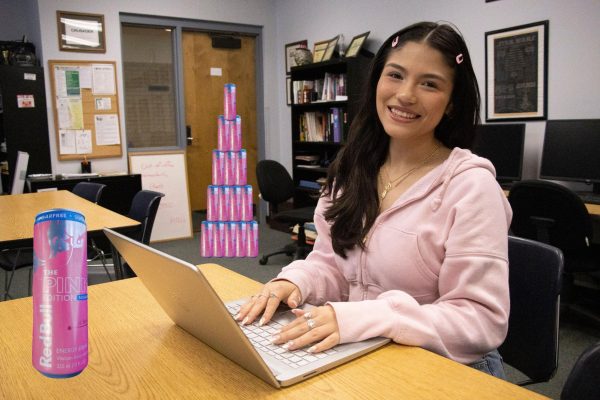

Jerri Lynn Lyddon • Sep 26, 2019 at 9:31 am
Great article from one of the most interesting and knowledgeable people I’ve ever met. Listen to Ty…he is a fountain of information and is fun not only to talk to, but to listen to! SCCC is lucky to have an instructor with his zest for knowledge and love of education!